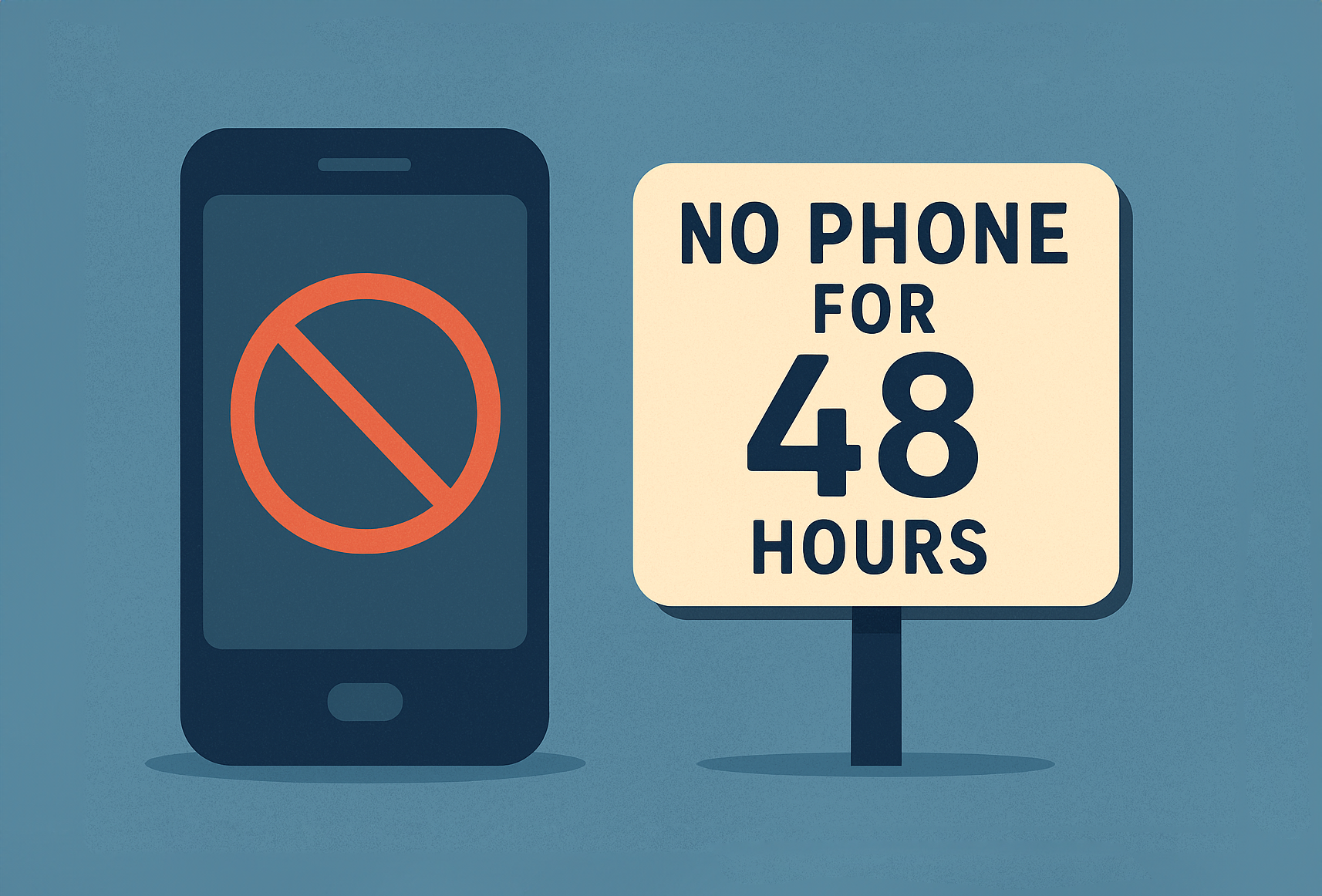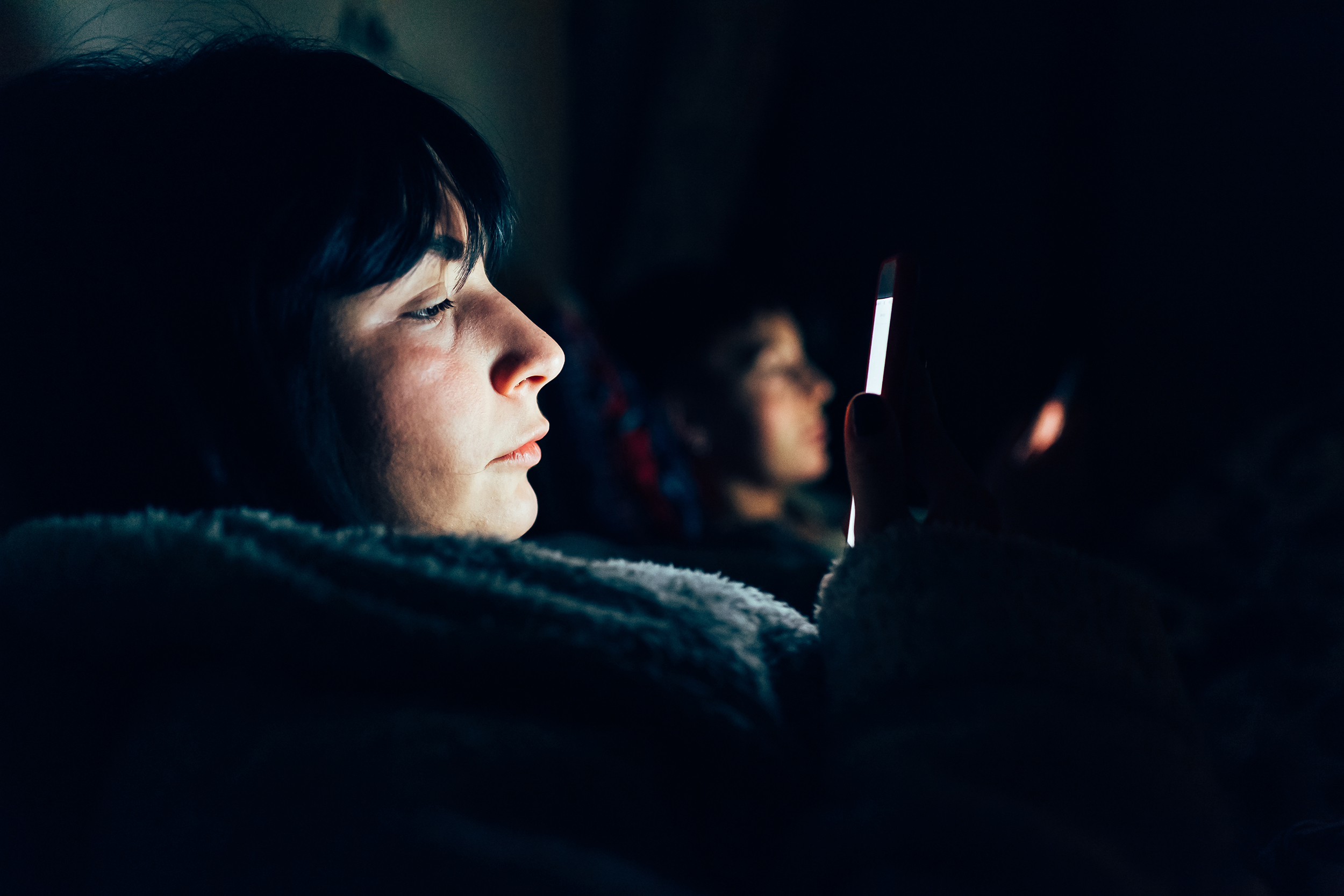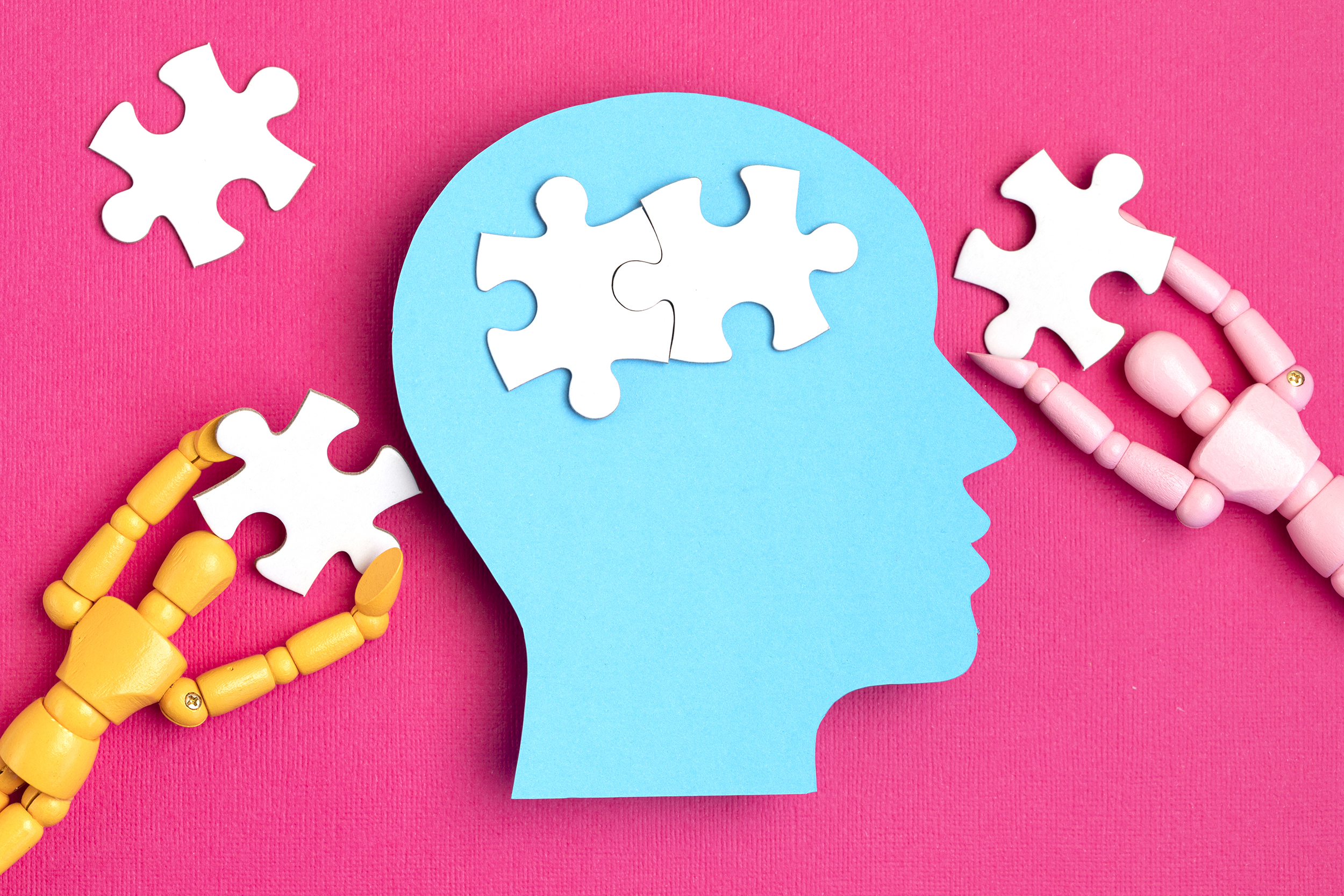
Surabhi Verma
January 15, 2026
•
5 min read time

In a time when notifications never sleep and scrolling doesn't stop, two days of screen silence is a rare concept. However, just like a messy desk, your mind needs to clear space too in order to declutter the head. Going device-free for 48 hours is a necessary reboot for mental well-being, clarity, and joy.
Technology is a part of our everyday lives, whether through watching lecture videos for a math class or spending hours on Block Blast. Oftentimes, people are so consumed by their devices that they don’t even realize how much time has passed. A two hour message conversation with your friend can feel like just twenty minutes.
This constant rush of information all the time is exhausting. The human brain pre-devices weren't designed to sort through a dozen pieces of gossip, skinny models, and headlines simultaneously. Without any intentional breaks taken, the consequences people suffer are mental fatigue, constant comparison, and decreased attention spans. For example, have you recently found yourself in a position where you can’t spend more than ten minutes studying without having the need to go on your phone? Or you can no longer watch a two hour movie because you’re so used to seeing 45 second clips on Instagram Reels before a new video with different content pops up? It’s now become so hard for people, especially youth who have lived with technological devices their whole lives, to have long-term focus on a task because they’ve become so addicted to short-term pleasure.

Many times, people check their devices not intentionally but involuntarily because of how much of a habit it has become. Two days without computers will allow the nervous system to release from hyperarousal into real rest. Because the mental confusion will decrease, your mind will have more clarity and your stress levels will lessen. Additionally, you will find yourself being more creative and at peace with yourself because you are finally giving yourself the opportunity to focus on yourself – not what society claims is the “perfect” lifestyle online. The purpose of this is not to never use technology again but to keep in mind what life is like without the noisy distractions and constant dopamine release.
Each notification you get can be a tiny spike of dopamine. The brain becomes used to pursuing these tiny rewards and develops a pattern of habitual checking. A 48-hour log-off brings an end to this pattern’s streak.
The first day may make you feel uneasy because your mind is addicted to the stimulation received by being on your device, but by day two, that feeling becomes less strong. Instead of focusing on technology, your attention is now on your senses – you will realize that you have become more aware of the sounds of chirping birds and the warm feeling of the sun. You’re now in the presence of who and where you are.

Blue light exposure from your screen, especially at night, reduces melatonin, and the emotional stimulation from the news or social media keeps the brain alert. Log-off eliminates this, and thus makes your sleep more restorative. You’ll also notice that with better sleep and no device disturbances, your mood and productivity naturally improve.
Technology is a great way to keep in touch with friends and family, but can sometimes take a person away from their duties entirely if they consume too much time texting or calling. Group chats and video calls are convenient but can’t replace the depth of face-to-face talk. In the absence of phone screen distraction during conversation, listening is what makes moments more genuine.

So how do you go about taking 48 hours off and be device-free? It may seem difficult to think about doing it, but it truly is a great way to connect with yourself.
Think about the timing, choosing the days without urgent digital obligations. Make sure to let key contacts know to reduce the fear of unavailability. Put your devices out of sight – out of sight, out of use. Do activities you love, pick up an old hobby, or try something new. You can get involved in reading, cooking, journaling, photography, and so much more. This offline time for 48 hours is wonderful, but these are some activities you should try to fit into your daily life as well to give your mind some rest even in the busiest and most chaotic of times.
Going dark for 48 hours is not isolation – it’s reconnection. Reconnecting with what counts, with the people who matter, and with the quieter aspects of the mind that are otherwise dominated by digital chatter.
The world will not disappear in 48 hours. The difference is that returning to it will be less frenetic, neater, and more considerate.
Ready to take charge of your mental wellness? Try Brightn free today.
